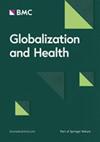企业利益集团及其对全球食品治理的影响:绘制和分析跨国超加工食品工业的全球企业影响网络图
IF 5.9
2区 医学
Q1 PUBLIC, ENVIRONMENTAL & OCCUPATIONAL HEALTH
引用次数: 0
摘要
转变食品体系以促进人类健康和可持续发展所面临的一个重大挑战是全球超加工食品(UPFs)生产和消费的增长。这种膳食转型的一个主要驱动因素是超加工食品企业的全球化,以及它们为抵制反对意见和阻挠政府监管而开展的有组织的企业政治活动(CPA)。UPF 行业的 CPA 以及代表其进行游说的企业利益集团已在国家层面上得到充分描述,但在全球层面上,这一网络尚未得到系统描述。本研究旨在绘制、分析和描述这一网络,并讨论全球粮食政策行动对 UPF、全球粮食治理(GFG)和粮食系统转型的影响。我们从网络资源、公司报告以及相关学术和灰色文献中提取数据,对世界领先的 UPF 公司所申报的利益集团成员资格进行了网络分析。我们还进一步提取了这些利益集团的特征数据进行分析,包括成立年份、级别、类型和总部所在地。我们确定了 268 个隶属于 UPF 行业的利益集团。UPF制造商雀巢公司(n = 171)、可口可乐公司(n = 147)、联合利华(n = 142)、百事可乐公司(n = 138)和达能公司(n = 113)的成员数量最多,表明它们在协调该网络方面具有很强的中心地位。我们发现,该网络在各个层面都有运作,但主要参与者目前主要通过全球治理论坛的多方利益相关者渠道进行全球协调。最常见的利益集团类型是可持续发展/企业社会责任/多方利益相关者倡议,其次是品牌和广告,以及食品制造和零售。大多数企业利益集团的总部都设在能够接触到有权势的政府和全球食品添加剂集团决策者的地方,近三分之一的企业利益集团总部设在华盛顿特区和布鲁塞尔,其余的则设在全球食品添加剂主要国家市场的首都。万国邮联行业,特别是其龙头企业,协调着一个跨越多层次、多管辖区和多治理空间的全球利益集团网络。这代表了全球食品和健康治理体系的一个主要结构特征,可以说对减轻 UPFs 危害的行动以及实现健康和可持续的食品体系构成了重大挑战。本文章由计算机程序翻译,如有差异,请以英文原文为准。
Corporate interest groups and their implications for global food governance: mapping and analysing the global corporate influence network of the transnational ultra-processed food industry
A major challenge to transforming food systems to promote human health and sustainable development is the global rise in the manufacture and consumption of ultra-processed foods (UPFs). A key driver of this dietary transition is the globalization of UPF corporations, and their organized corporate political activity (CPA) intended to counter opposition and block government regulation. UPF industry CPA and the corporate interest groups who lobby on their behalf have been well described at the national level, however, at the global level, this network has not been systematically characterized. This study aims to map, analyse, and describe this network, and discuss the implications for global food policy action on UPFs, global food governance (GFG), and food systems transformation. We conducted a network analysis of the declared interest group memberships of the world’s leading UPF corporations, extracted from web sources, company reports, and relevant academic and grey literature. Data on the characteristics of these interest groups were further extracted for analysis, including year founded, level, type, and headquarter location. We identified 268 interest groups affiliated with the UPF industry. The UPF manufacturers Nestlé (n = 171), The Coca-Cola Company (n = 147), Unilever (n = 142), PepsiCo (n = 138), and Danone (n = 113) had the greatest number of memberships, indicating strong centrality in coordinating the network. We found that this network operates at all levels, yet key actors now predominantly coordinate globally through multistakeholder channels in GFG. The most common interest group types were sustainability/corporate social responsibility/multistakeholder initiatives, followed by branding and advertising, and food manufacturing and retail. Most corporate interest groups are headquartered where they can access powerful government and GFG decision-makers, nearly one-third in Washington DC and Brussels, and the rest in capital cities of major national markets for UPFs. The UPF industry, and especially its leading corporations, coordinate a global network of interest groups spanning multiple levels, jurisdictions, and governance spaces. This represents a major structural feature of global food and health governance systems, which arguably poses major challenges for actions to attenuate the harms of UPFs, and to realising of healthy and sustainable food systems.
求助全文
通过发布文献求助,成功后即可免费获取论文全文。
去求助
来源期刊

Globalization and Health
PUBLIC, ENVIRONMENTAL & OCCUPATIONAL HEALTH-
CiteScore
18.40
自引率
1.90%
发文量
93
期刊介绍:
"Globalization and Health" is a pioneering transdisciplinary journal dedicated to situating public health and well-being within the dynamic forces of global development. The journal is committed to publishing high-quality, original research that explores the impact of globalization processes on global public health. This includes examining how globalization influences health systems and the social, economic, commercial, and political determinants of health.
The journal welcomes contributions from various disciplines, including policy, health systems, political economy, international relations, and community perspectives. While single-country studies are accepted, they must emphasize global/globalization mechanisms and their relevance to global-level policy discourse and decision-making.
 求助内容:
求助内容: 应助结果提醒方式:
应助结果提醒方式:


